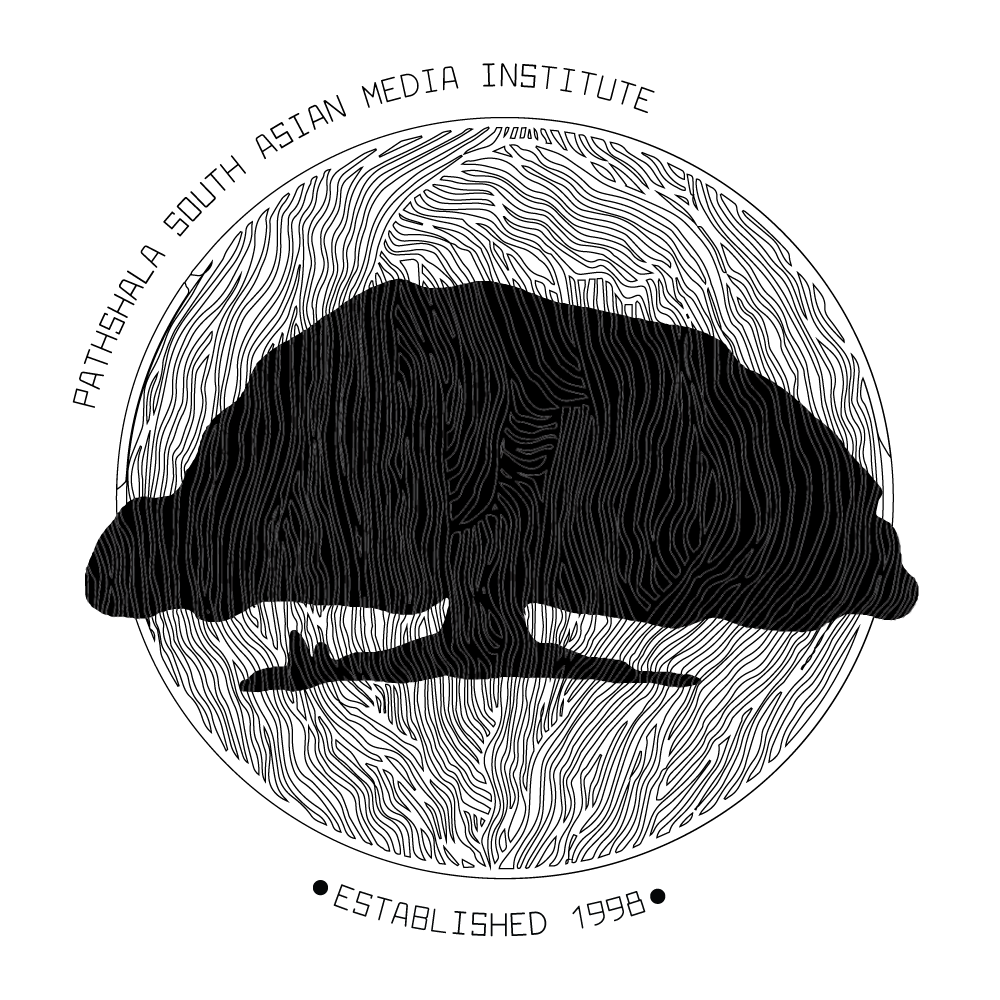EXTRACURRICULER
By Tanzim Wahab & Sarker Protick
Istanbul Biennial 2022
The Istanbul Biennial announces that the exhibitions of the 17th Istanbul Biennial initially planned for September 2021 have been rescheduled and will now be held between 17 September and 20 November 2022.
The 17th Istanbul Biennial, its curators and participants continue to be affected by the pandemic and its life-altering consequences. In consideration of the gravity of the ongoing health crisis in many regions around the world and the uncertainty of the coming months, the decision to reschedule was taken by the Istanbul Foundation for Culture and Arts (İKSV) in agreement with curators Ute Meta Bauer, Amar Kanwar and David Teh, partners and participants.
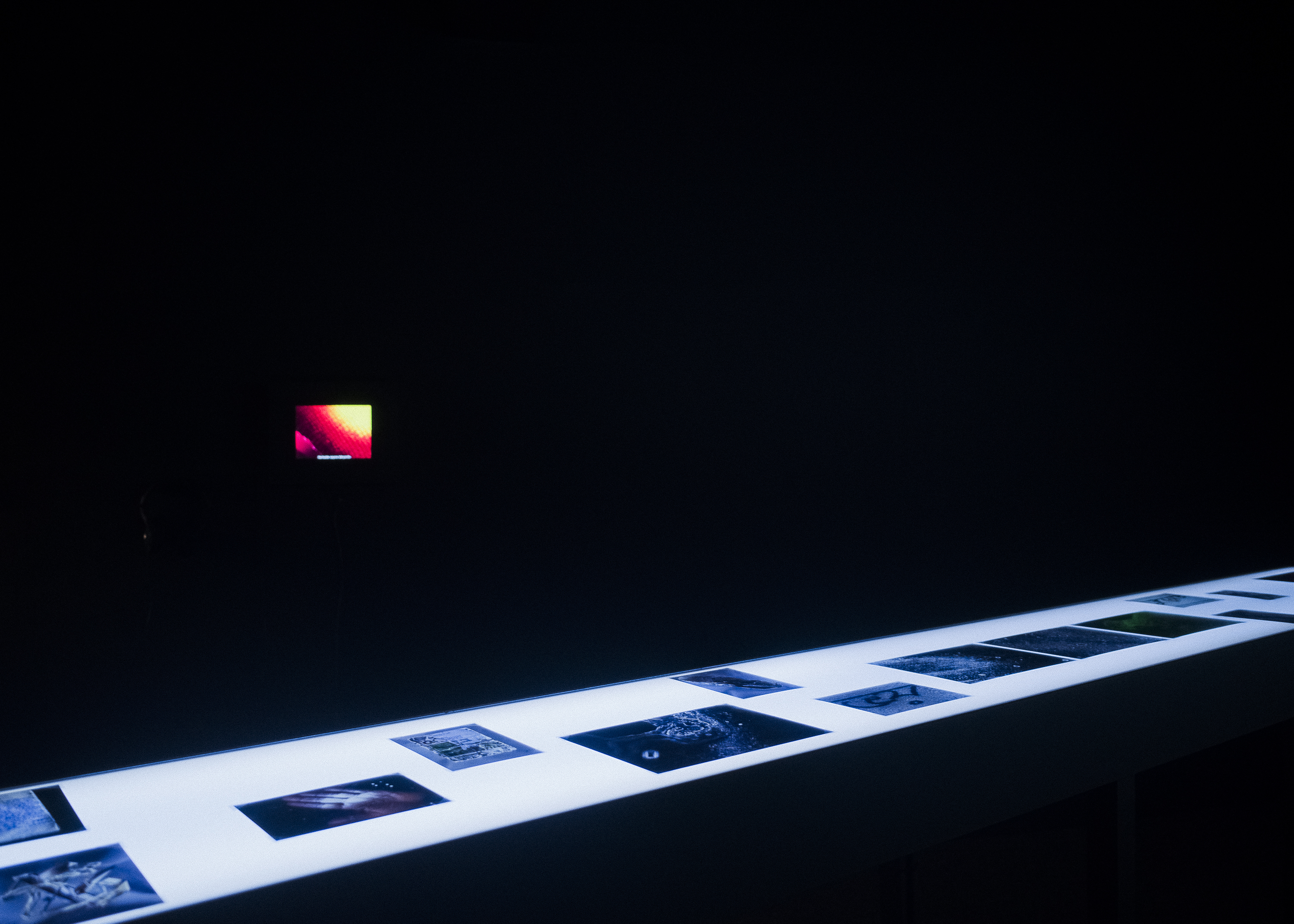
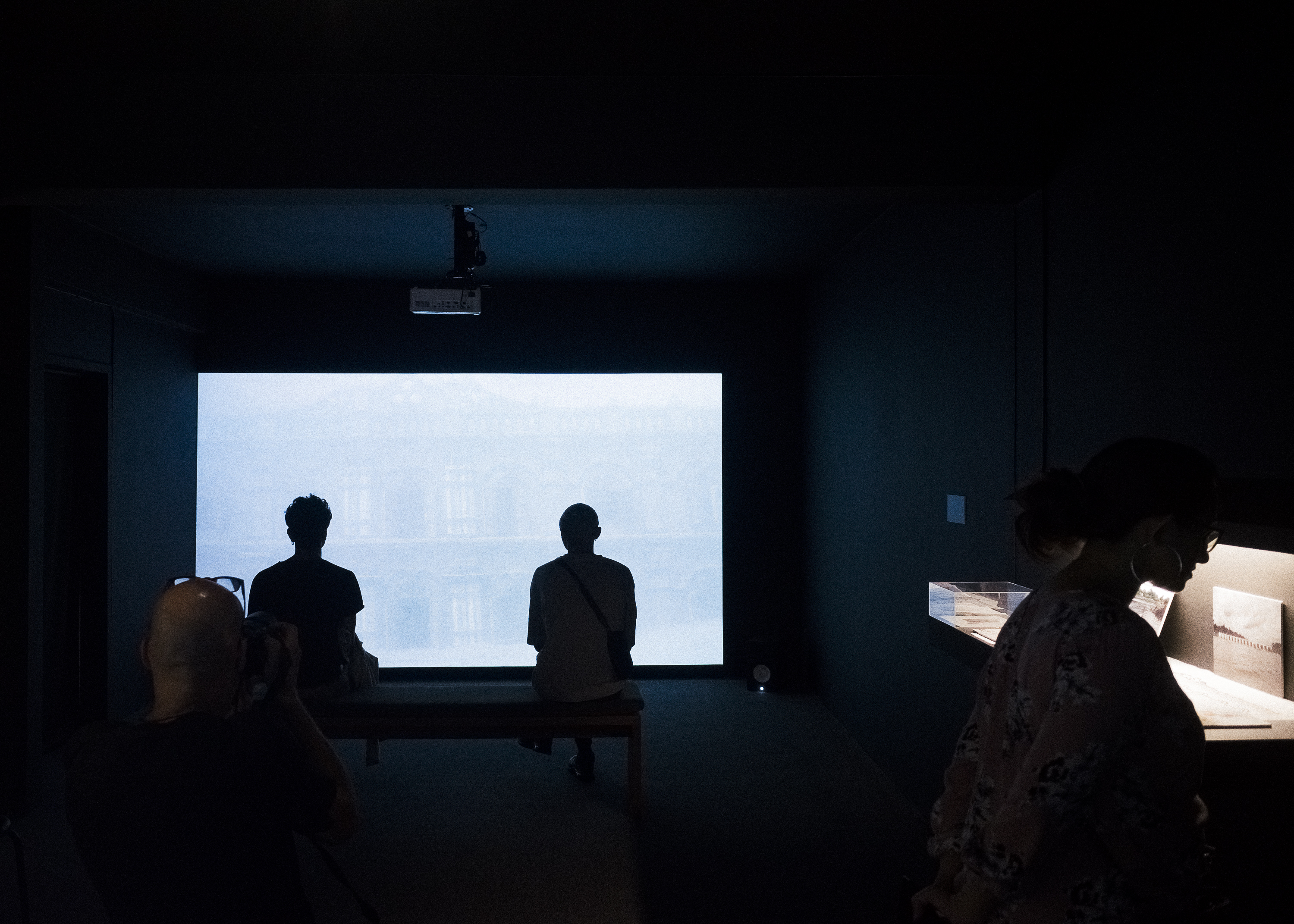
Pathshala invites its teachers, students and allies to share their activistic works mutually reinforcing the process of teaching, learning and collective-making, in and out of the classroom environment. Conceptualizing community activism as linked to school outcomes, Pathshala explores out-of-school spaces where teachers, after-school practitioners, allies and students find greater freedom to engage in critical pedagogy, praxis, and social action. These collective undertakings in political movements and community-building at various levels ranges from academia to archives, artists to journalists, studios to forums, bloggers to activists, in a form of collaboration, dialogue, solidarity and shared strategy.
The three thematic areas of the exhibition are addressing multifarious social justice issues of contemporary Bangladesh, related to displacement and disappearance. From crackdown on free expression, indigenous rights violation to the labour movements against the modern-day slavery on an economic front, these projects are embedded in their distinct political realities yet adopted similar strategies that built on each other with cross-disciplinary projects.
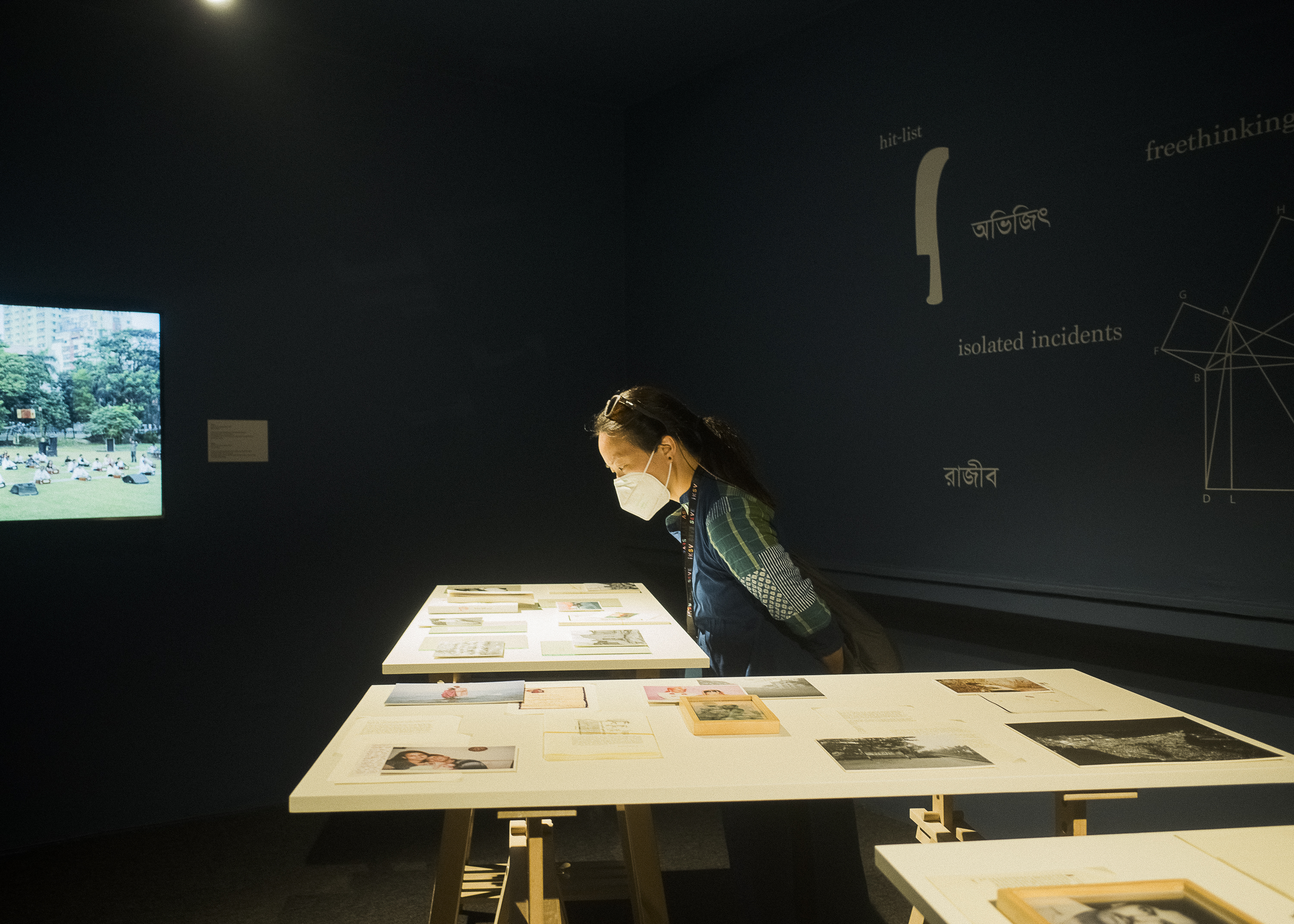
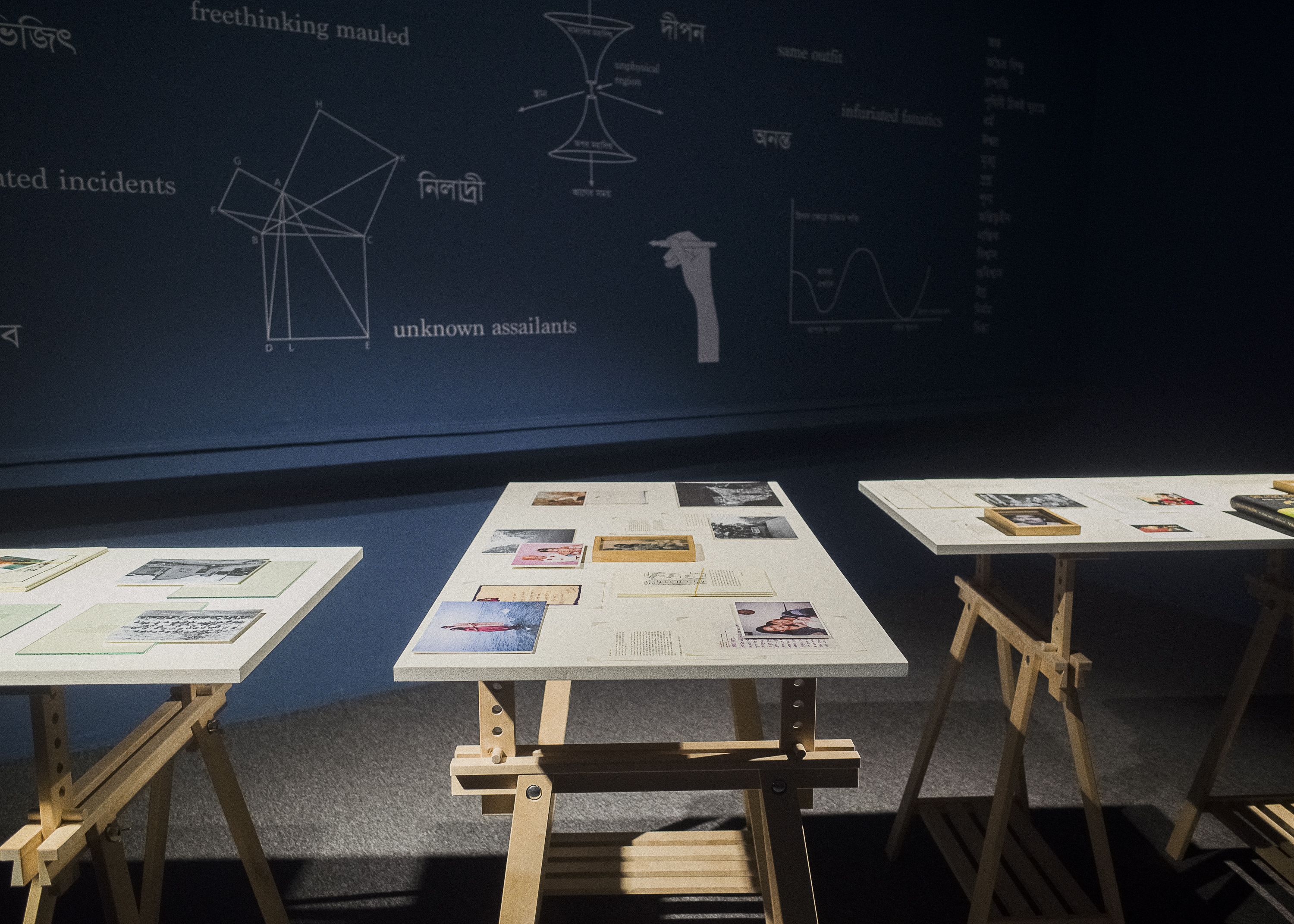
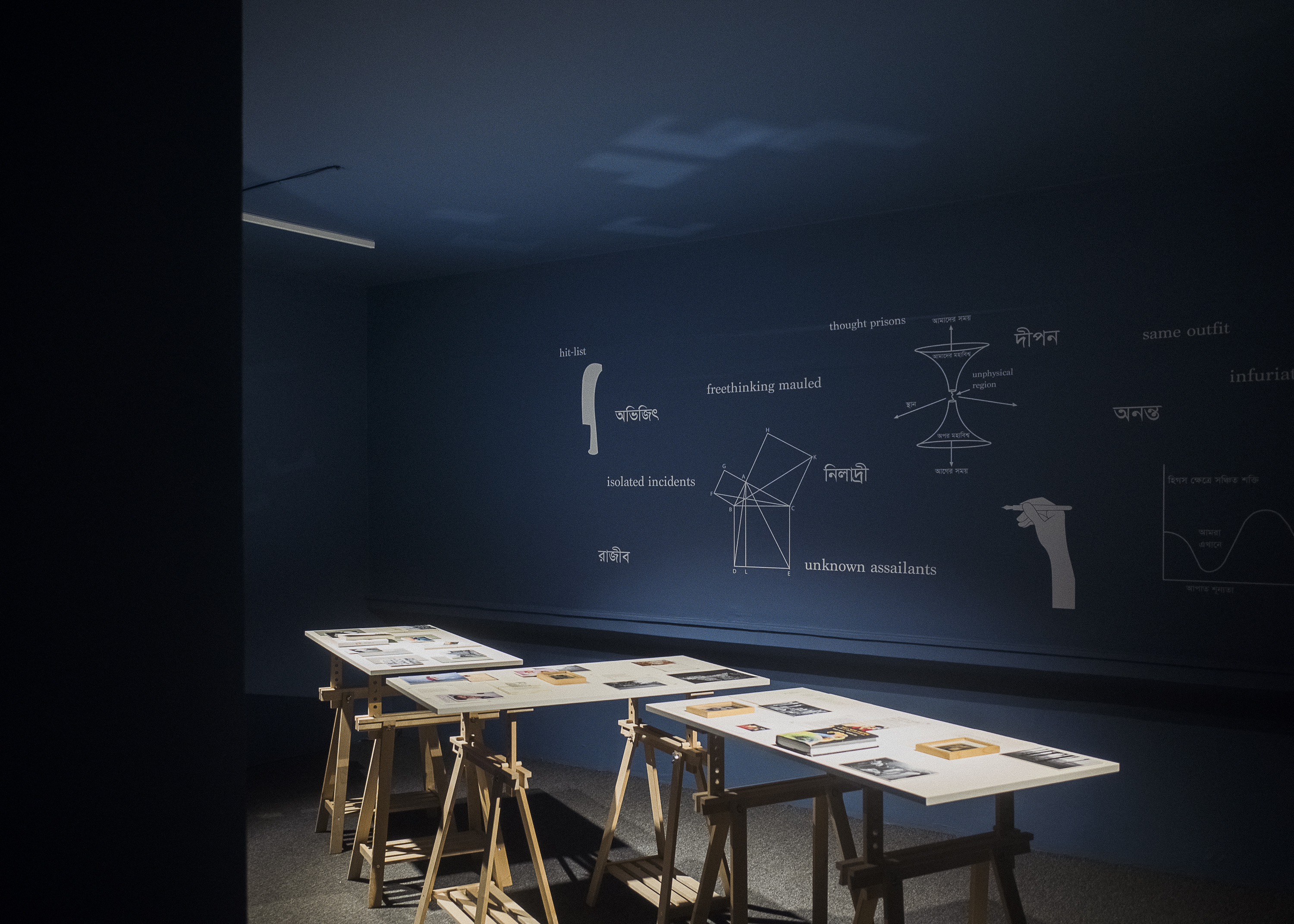
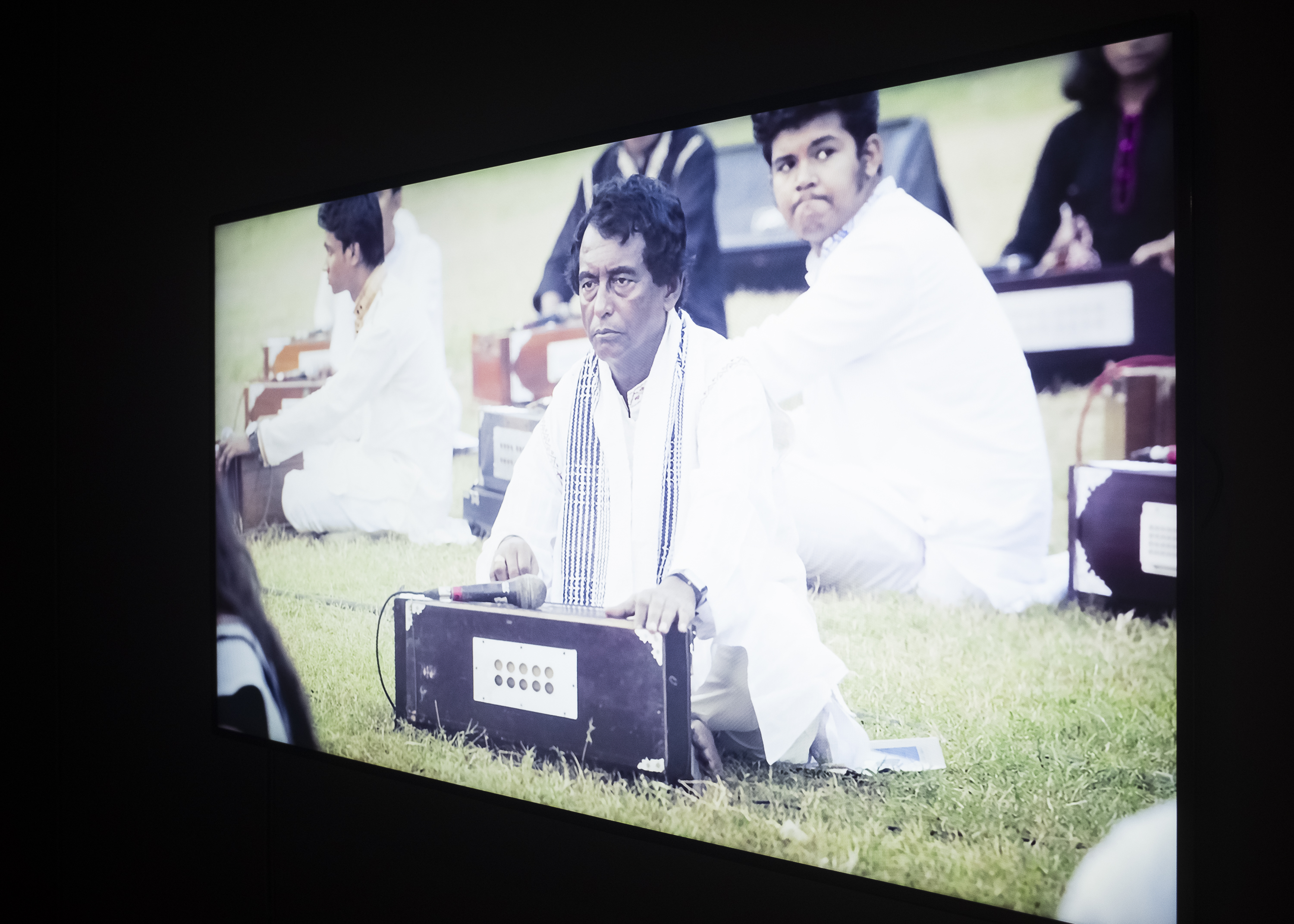
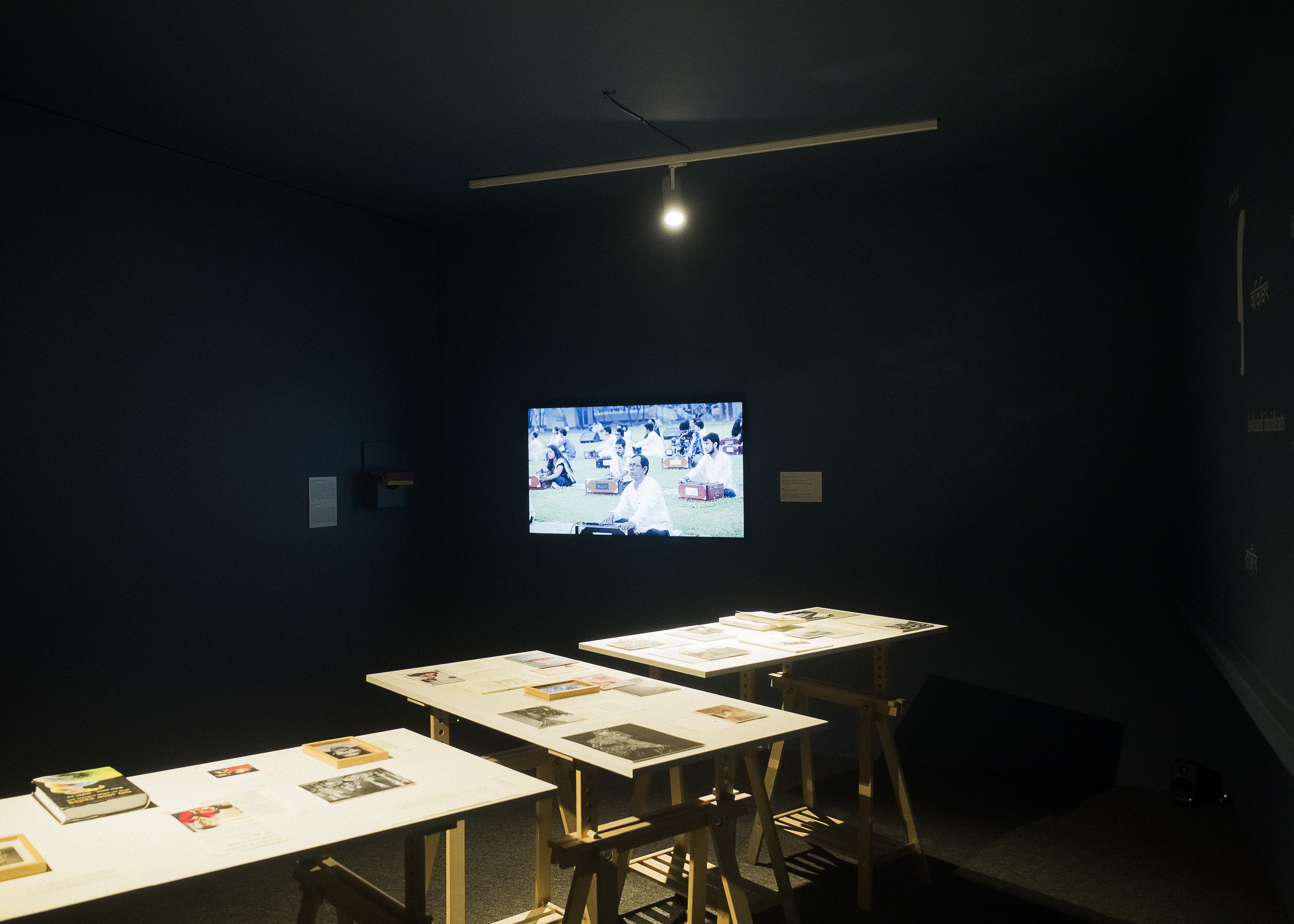
Pranabesh Das, a Pathshala alumni, showcases his graduation project on the killing of activist and writer Abijhit Roy, and exiled publisher Ahmed ur Rashid Chowdhury Tutul. Weaving together factual and personal narratives, photographs, text, found material, and literary works, this ongoing project unfolds the condition of human rights today and their inner contradictions in contemporary Bangladesh. Over the recent years, seven bloggers and publishers were murdered in accusation of blasphemy, promoting agnosticism, and provoking religious sentiments. Reetu Sattar, a performance artist, collaborates with Pathshala alumnus and forms a dialogue with Paranabesh’s work with her piece HARANO SUR (lost tune). In her performance, she uses harmonium and explores the violence and social upheaval as a metaphor of cultural control.
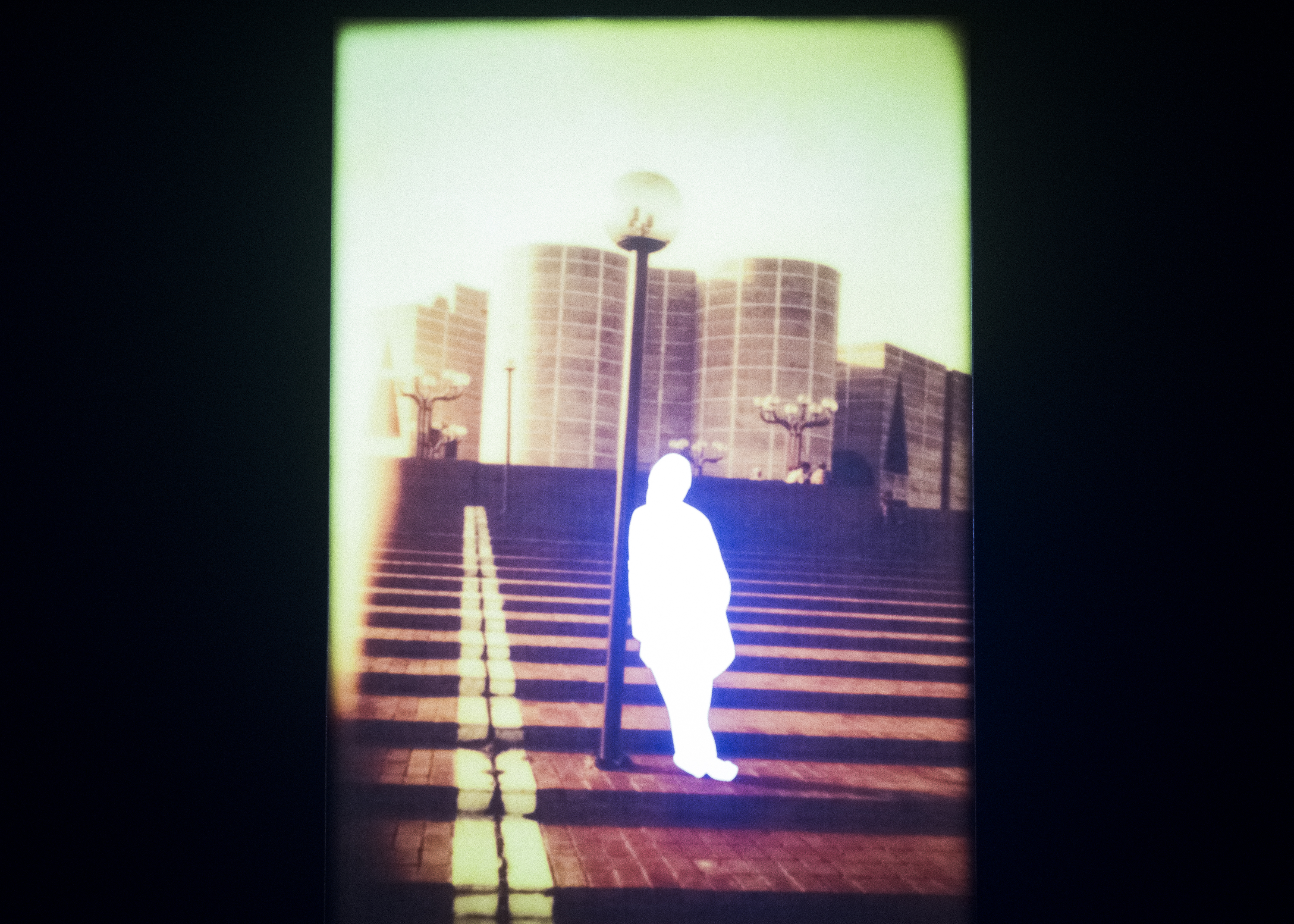
Pathshala founder Shahidul Alam developed a photo-forensic study on the disappearance of Kalpana Chakma, an outspoken indigenous Bangladeshi woman who fought for the rights of her people. The images he has created, while based upon complex scientific procedures, does not ‘prove’ anything. The objects he had photographed, while silent witnesses, had not ‘seen’ the crime. The artifacts, interviews, videos and photographs Alam presents are not ‘evidence’. But it opens a rich forum for dissent and effectively shatters the silence successive Bangladeshi governments, whether civilian or military backed, has carefully nurtured for the seventeen long years.
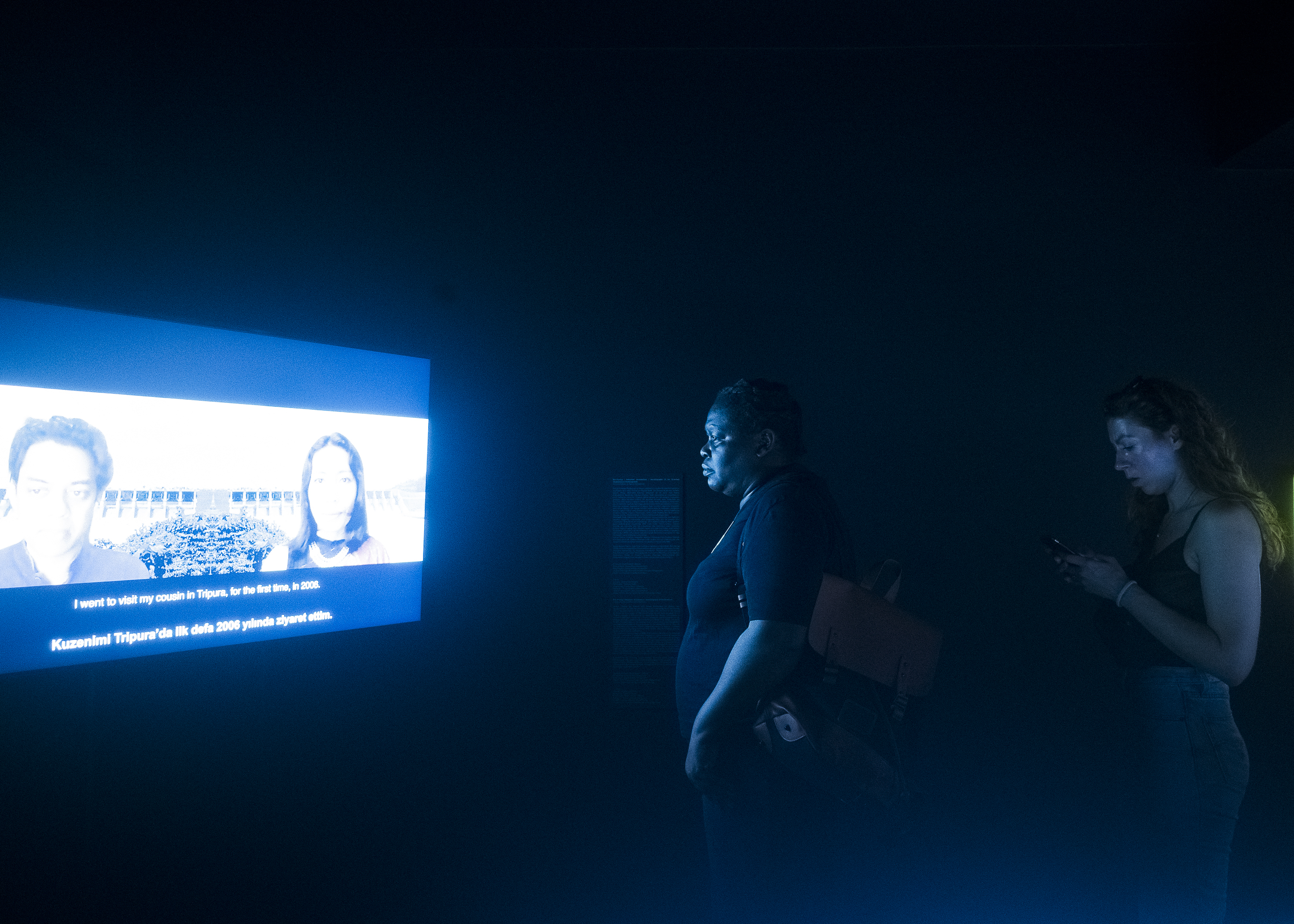
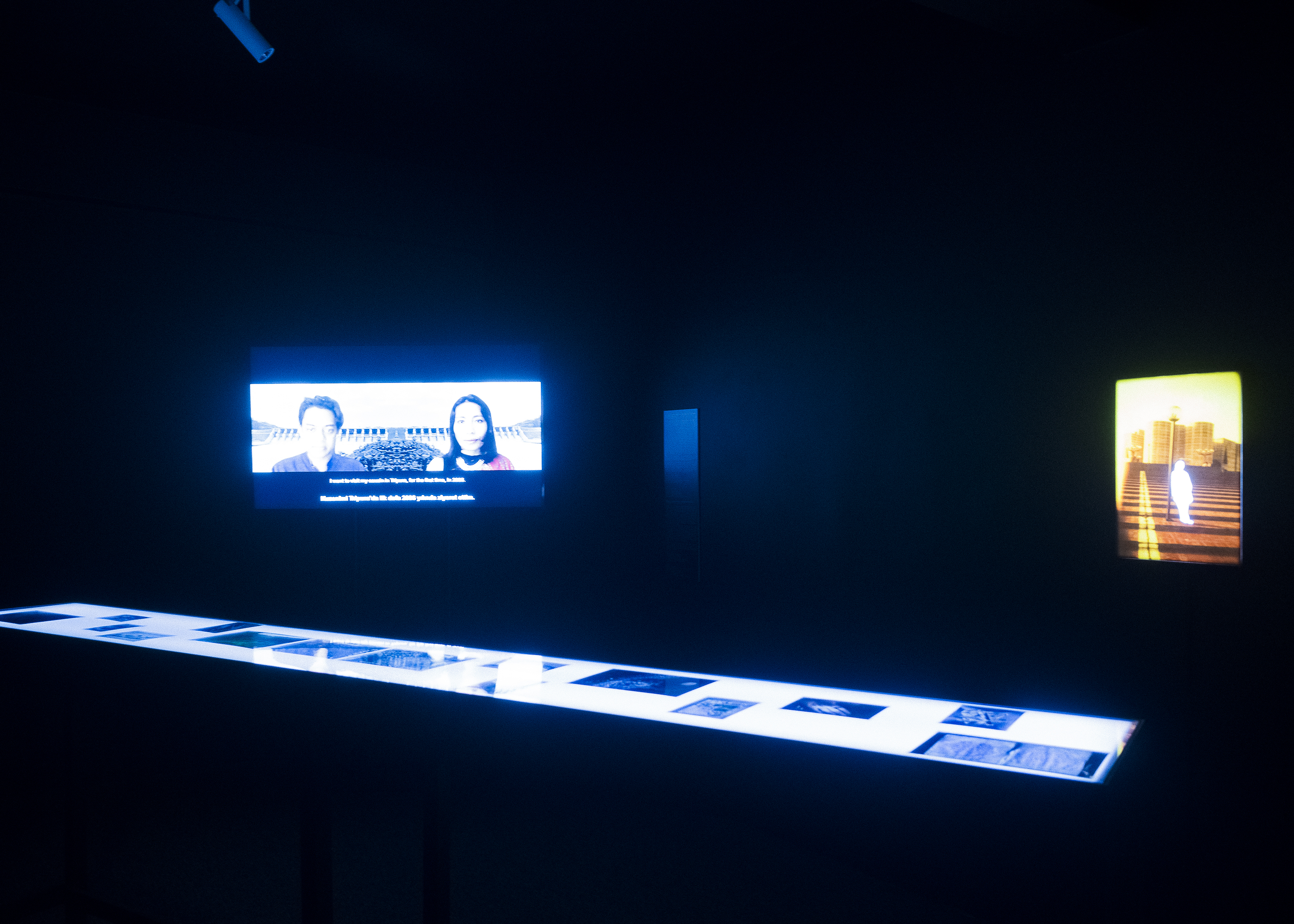
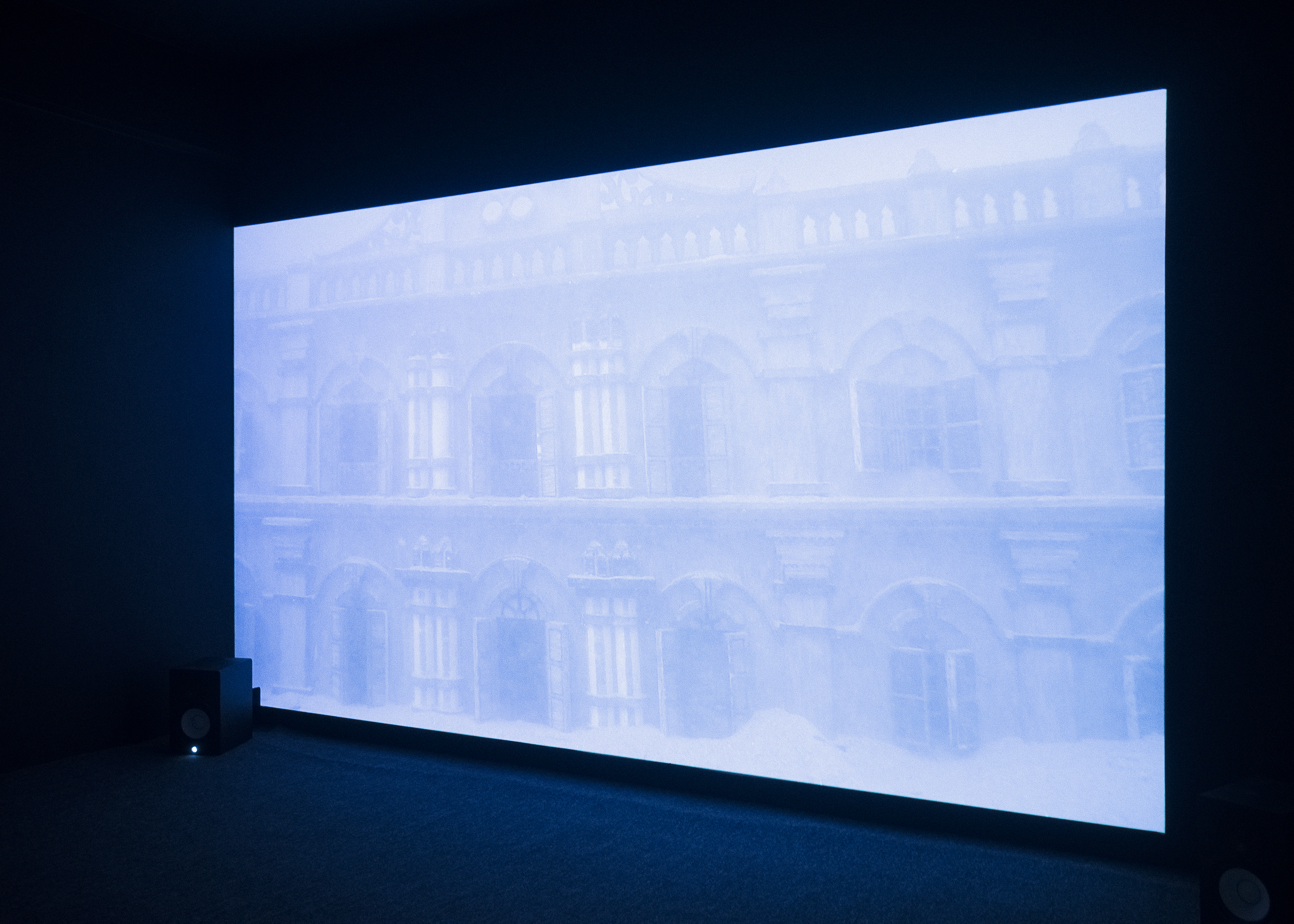
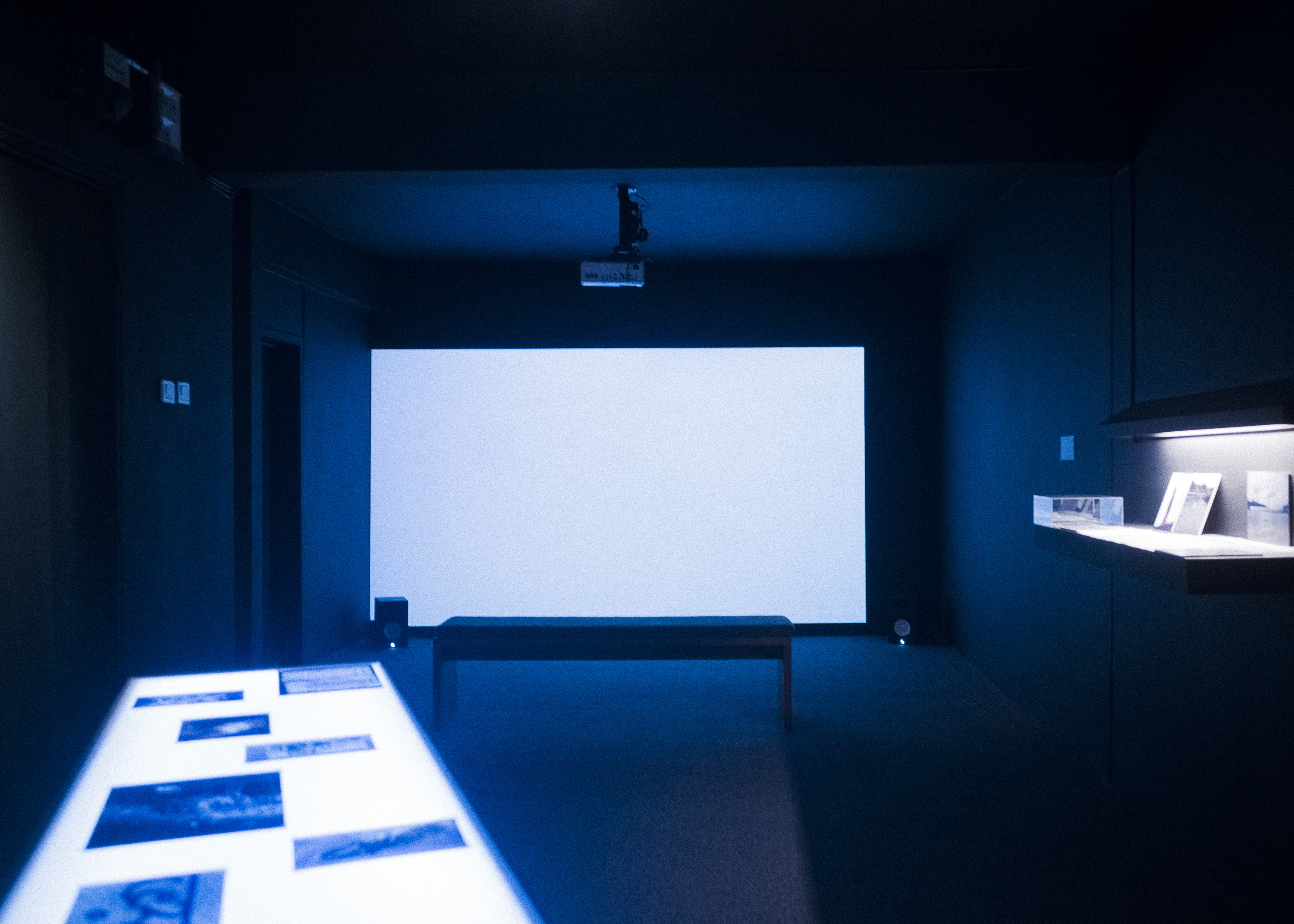
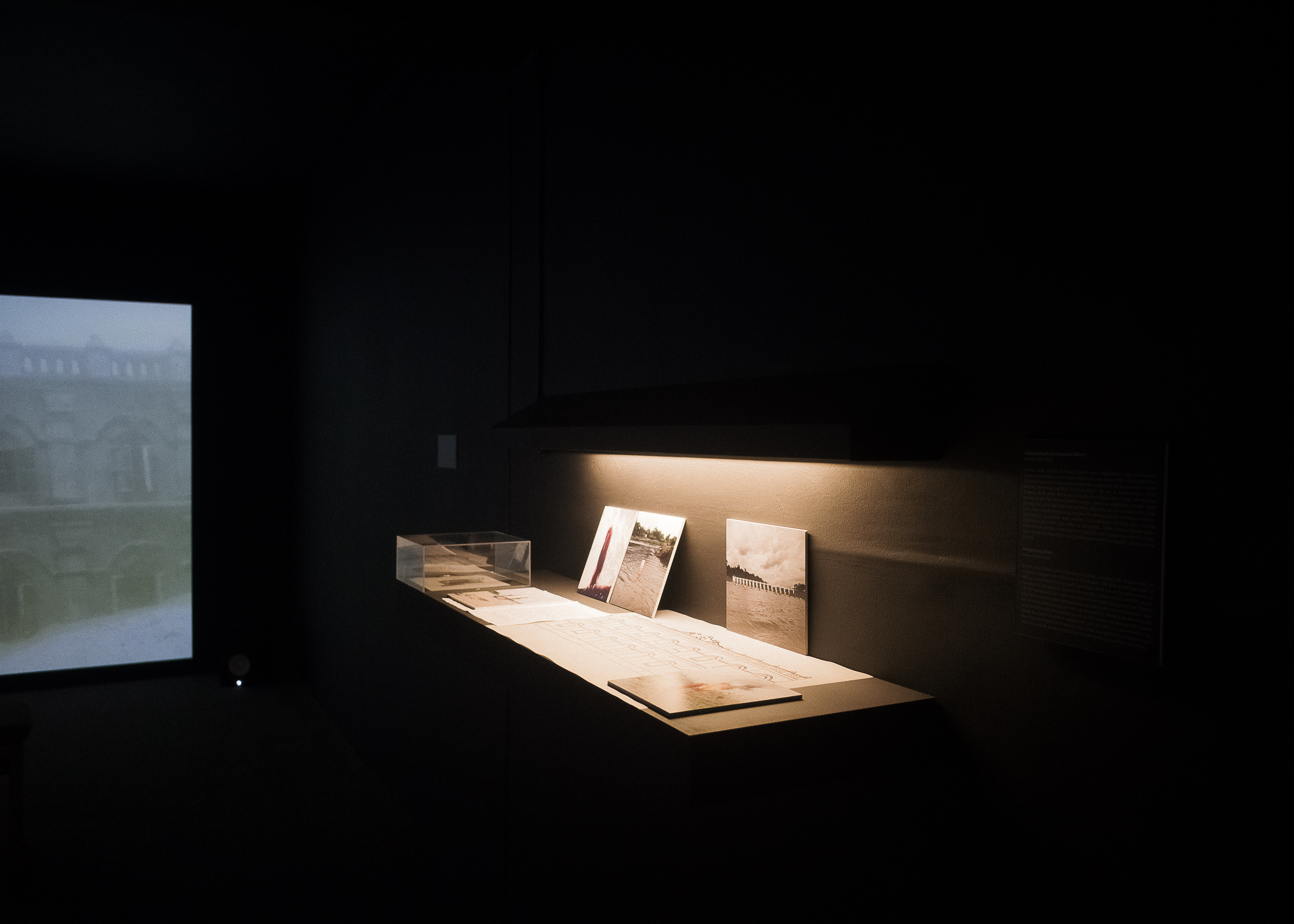
In a recently commissioned project by Chobi Mela (the photo festival co-organized by Pathshala), activists and writers Samari Chakma (in Sidney) and Naeem Mohaiemen (in Dhaka) read simultaneously, over the internet, from Samari’s book Kaptai Badh: Bor-Porong. This is an oral history of Chakma people exiled by drowning in the Kaptai Hydroelectric Dam project of 1960-64 (Pakistan period). Each paragraph in Chakma language is followed by its translation into Bangla. This gesture of reciprocal translation comes in a pandemic time where conversations are isolated and digital, whether with a neighbour in Dhaka or an exiled comrade in Sidney. Placing Chakma in the dominant role is a rebuke to the role of Bangladesh in extinguishing indigenous Pahari languages in Chittagong Hill Tracts. Pathshala alumni Samsul Alam’s work depicts the same events of forced displacement with video and photography, and captures the remaining traces of ancient ways of life, highlighting the violence of gentrification and the trauma found in submerged symbols of cultural autonomy.
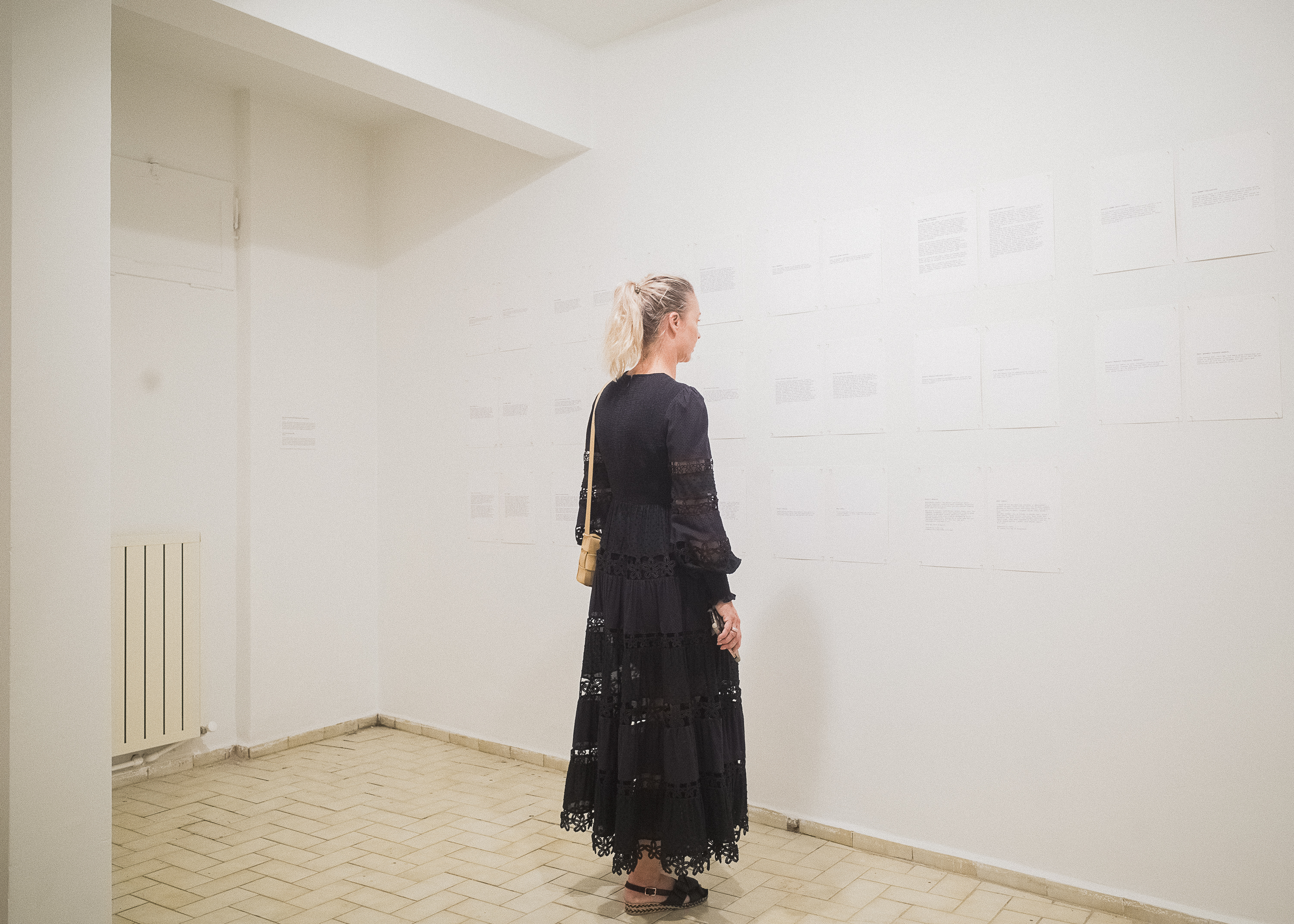

An activistic blog Thotkata presents- ‘Letter from an Unborn Child', a series of letters reflecting the anguish and pain of an unborn child, as the kid addresses these letters to the readers, shoppers, and authorities related to the Tazreen factory fire in 2012.On November 24, 2012, more than 119 garment workers died when a fire broke out in Tazreen Fashions Ltd in Ashulia's Nischintapur. Mimi, a five- months pregnant worker, was among the unidentified victims of the tragedy. The letters portray Mimi's unborn child's anger and plea to the ones present in the world today. Pathshala faculty Saydia Gulrukh co-founded ‘Thotkata’ - ‘cut lip’ in the sense of “one who is not careful in her speech.” Thotkata started blogging with online activism, but over the years, the platform have participated in protests and responded to events of state violence and ‘industrial accidents.
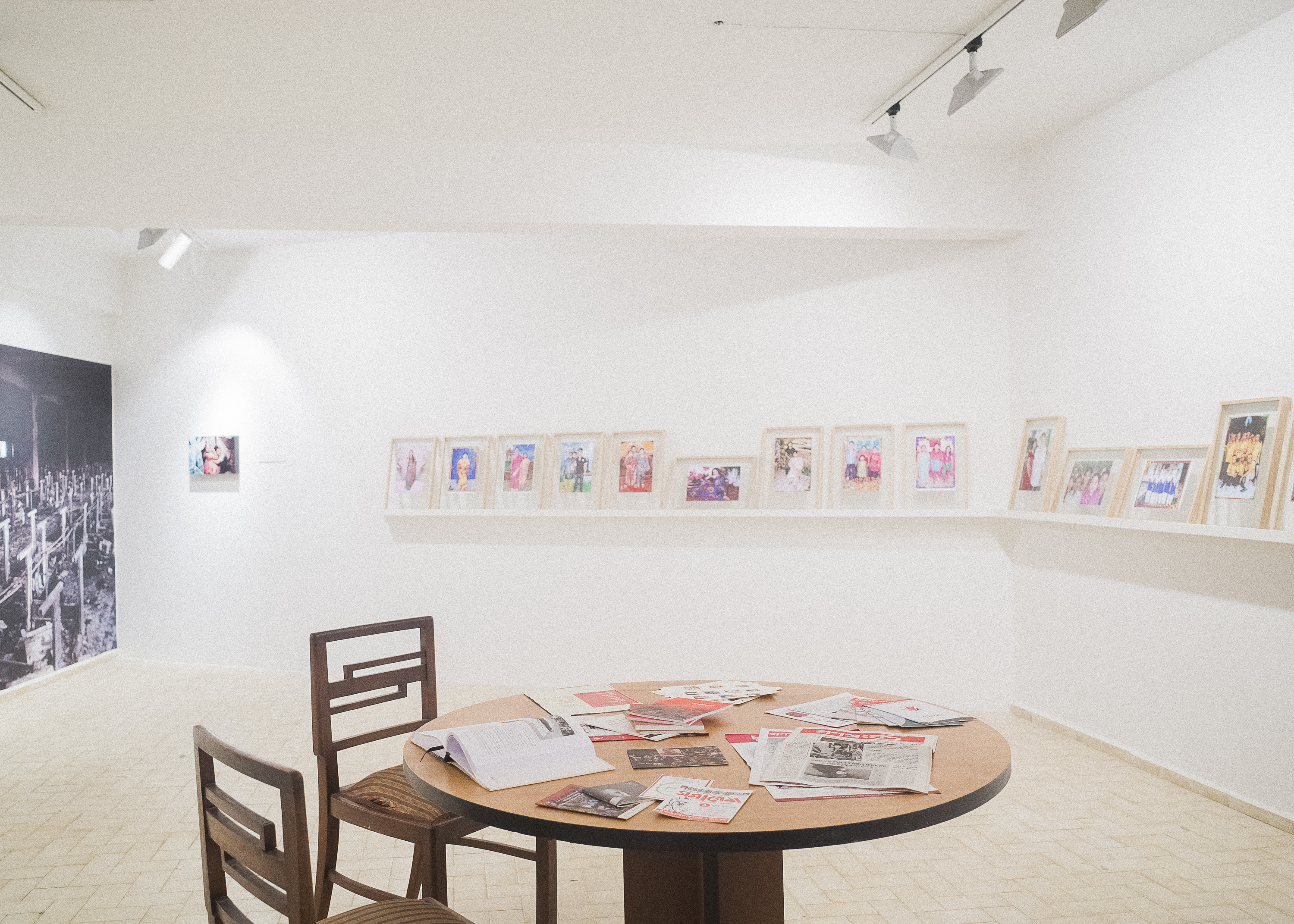
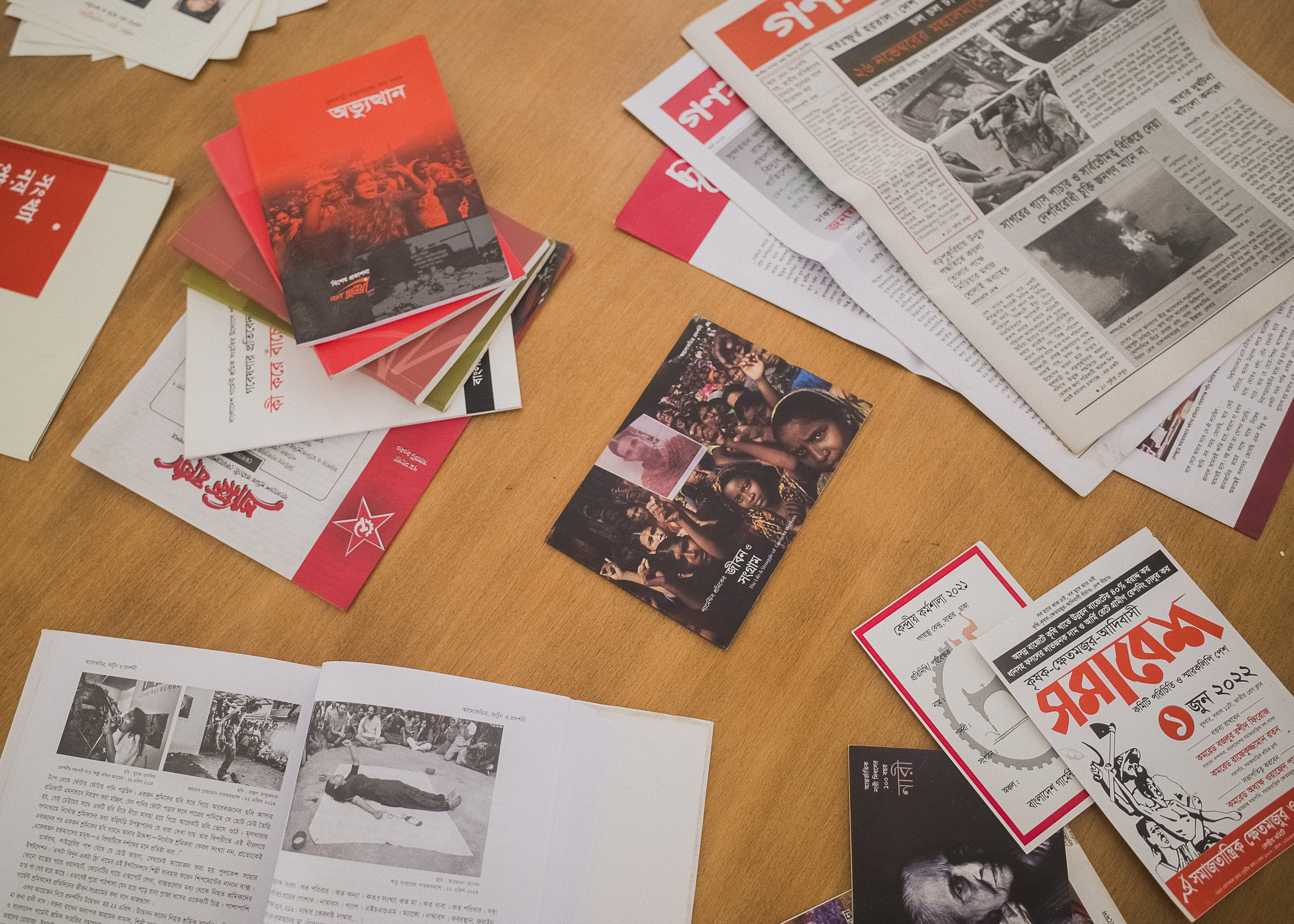
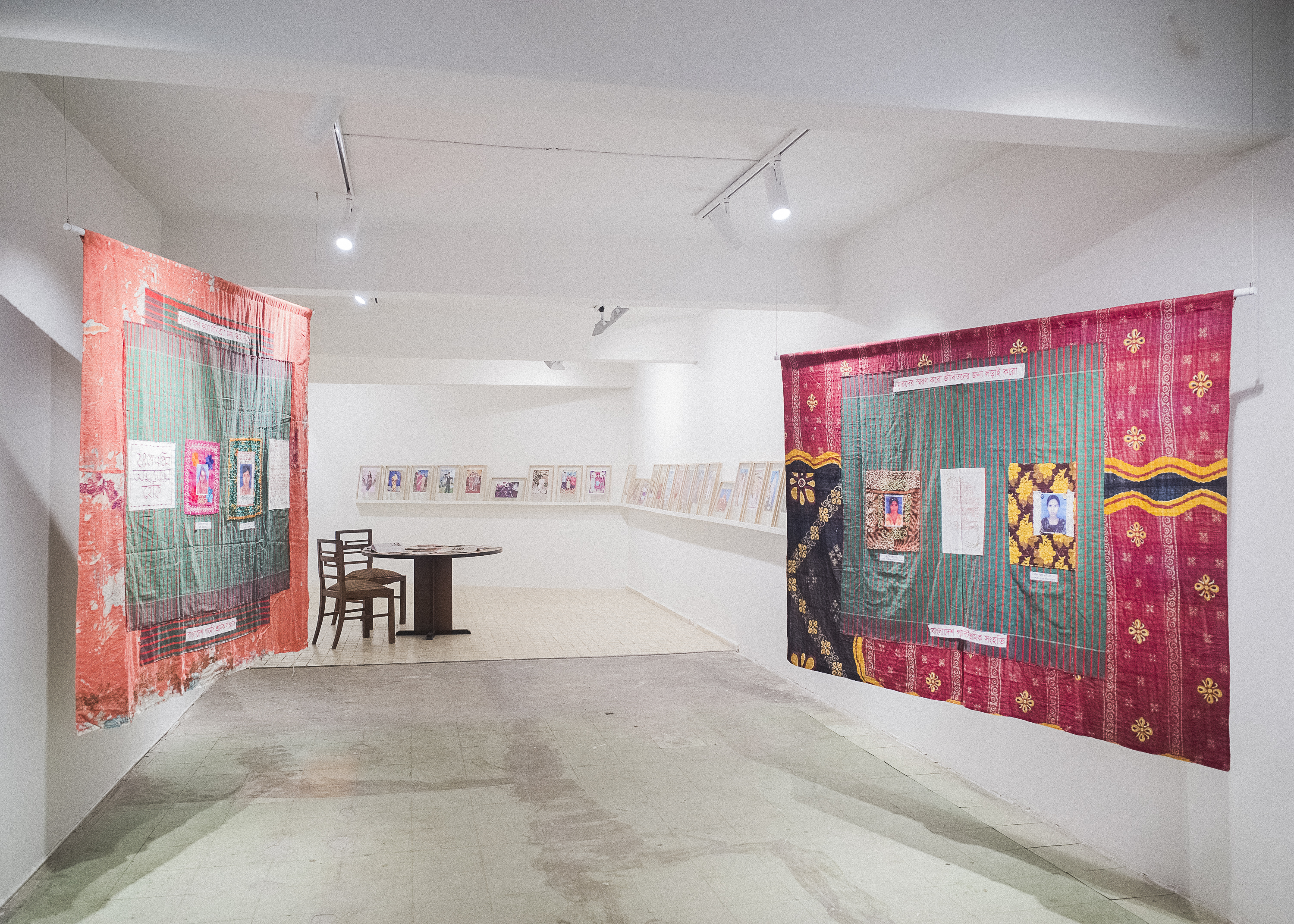
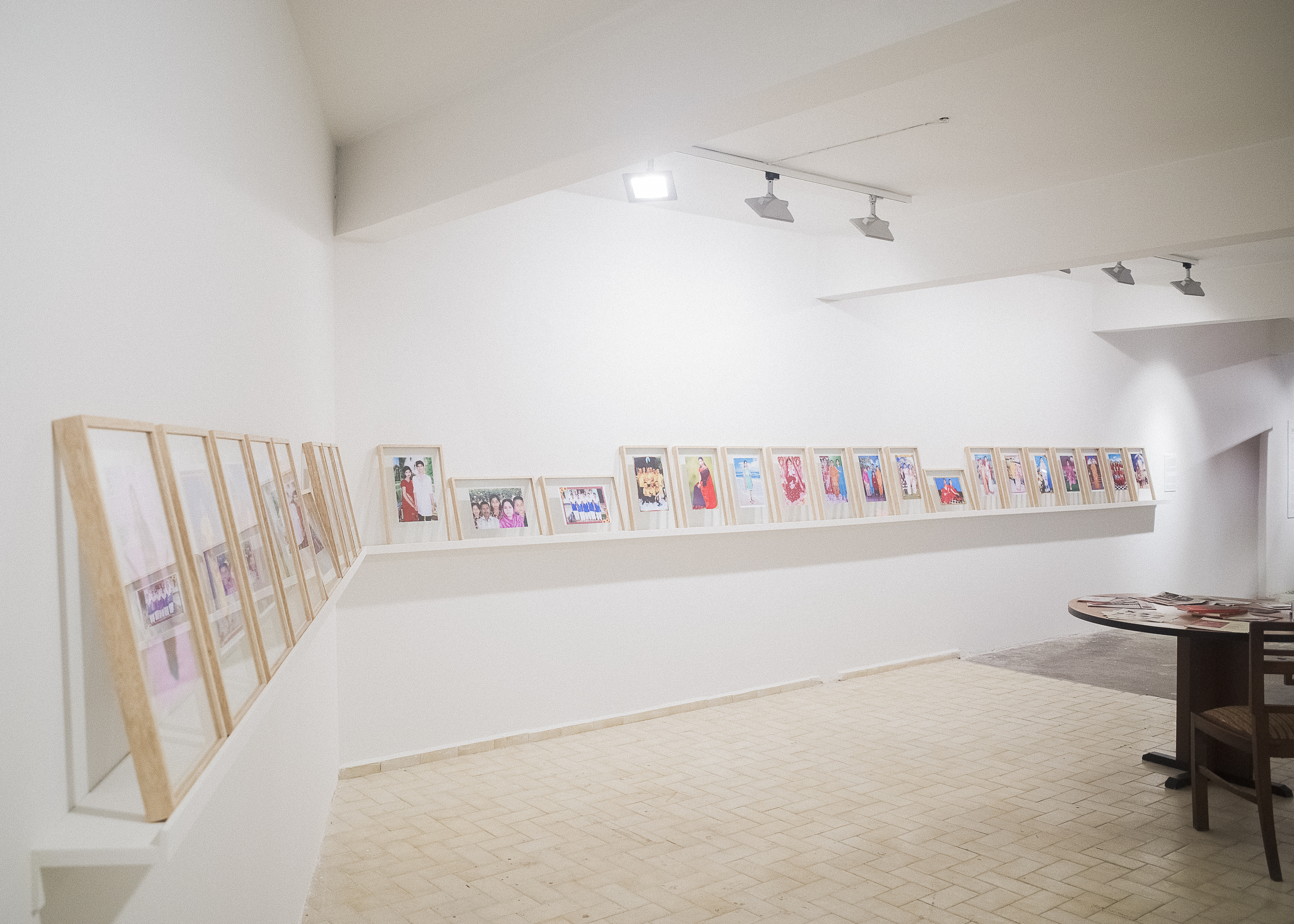
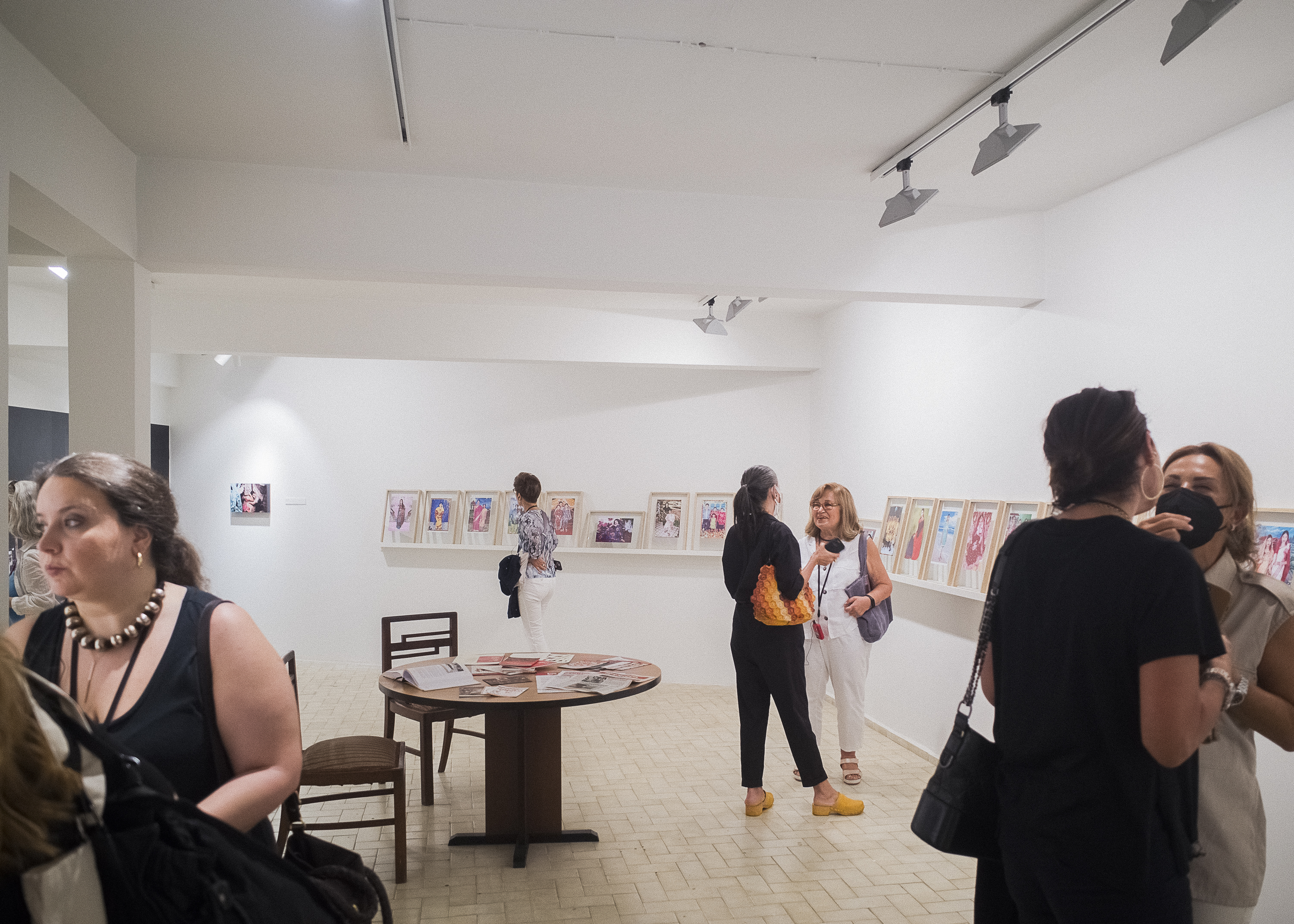
Pathshala alumni and faculty Taslima Akhter presents both her personal and collective works as a photographer, activist and member of a political party focusing on the workers’ rights movement. Taslima has been a witness to workers’ struggles for the last 11 years and has contributed to multiple books and projects as the Chair of Garment Sromik Samhoti (Bangladesh Garment Workers Solidarity). While history remembers this tragic event as the deadliest garment factory accident, Taslima reveals a story of dreams crushed by structural murder. Dedicating her career to the lives and struggles of garment workers in Bangladesh, she has continued to foster a community rallying together for safer working conditions.
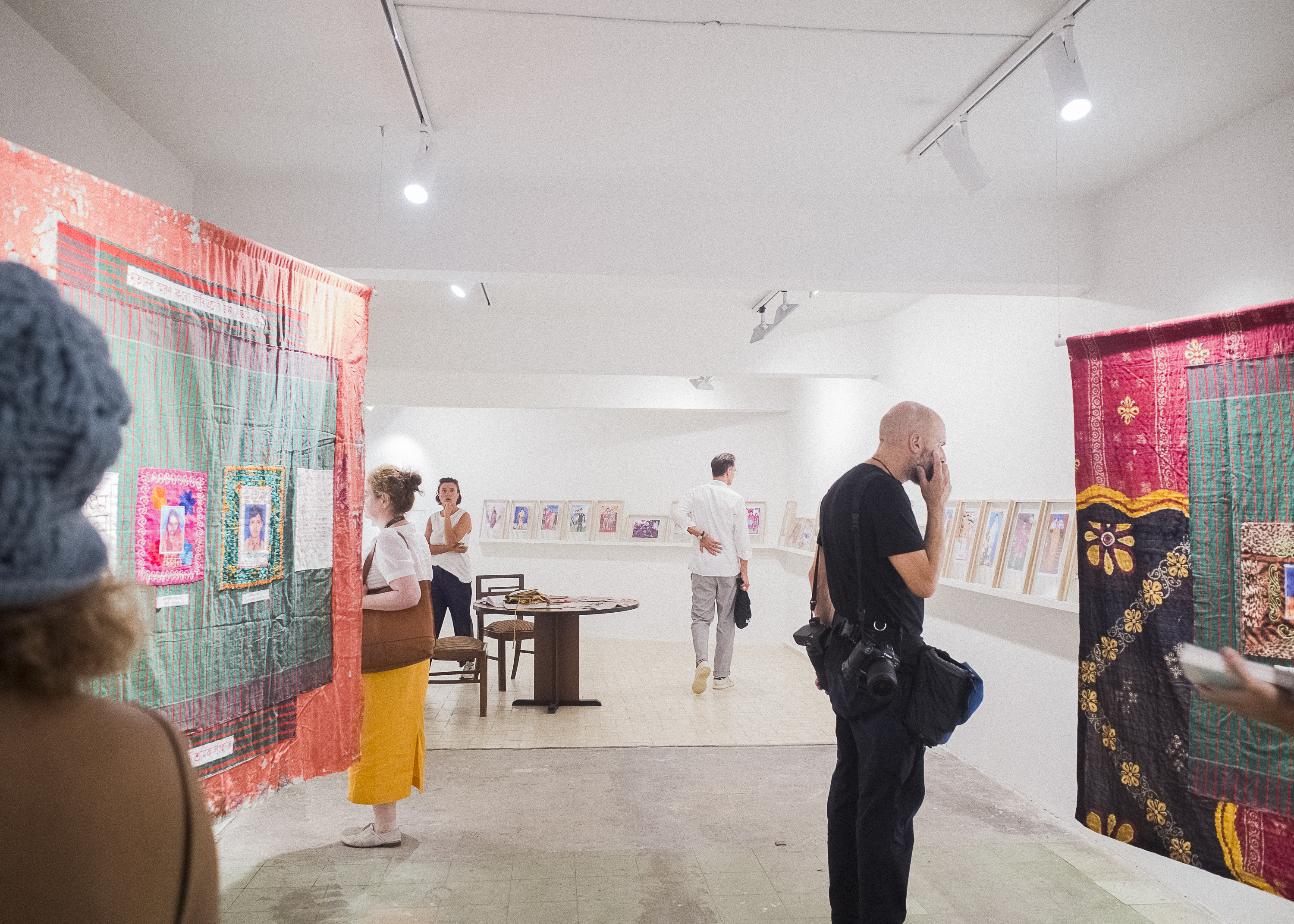
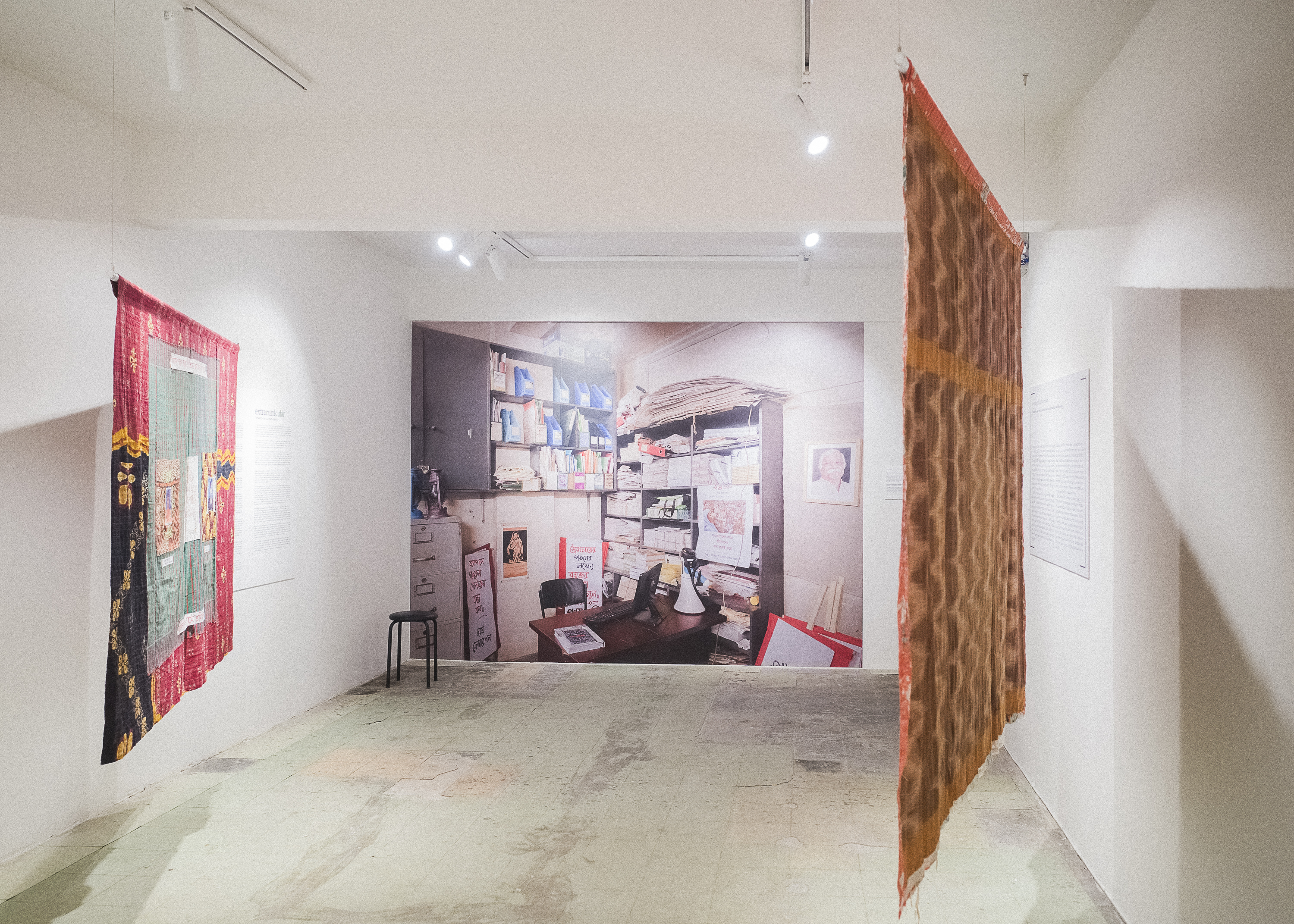
In an act of remembrance, healing, and solidarity, volunteer quilters have produced commemorations for their friends and loved ones lost to the Rana Plaza Collapse. The quilts are made up of embroidered messages and photographs, and incorporate belongings donated by surviving relatives. The artists hope to develop awareness of the injustices that garment workers experience and are at risk of every day. Telling a counter-narrative of the disaster, these quilts provide families with the ability to memorialize their loved ones while also activating a conversation with the public.
